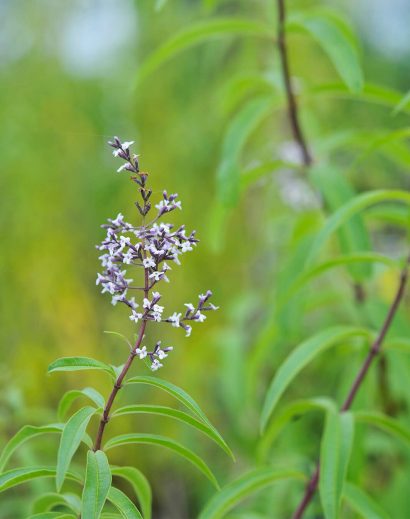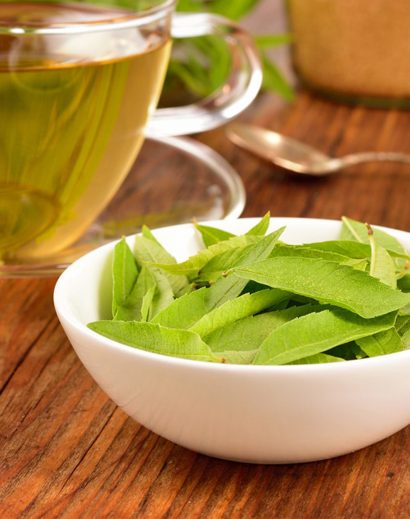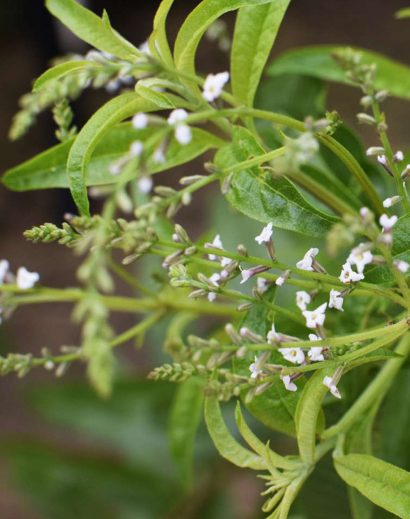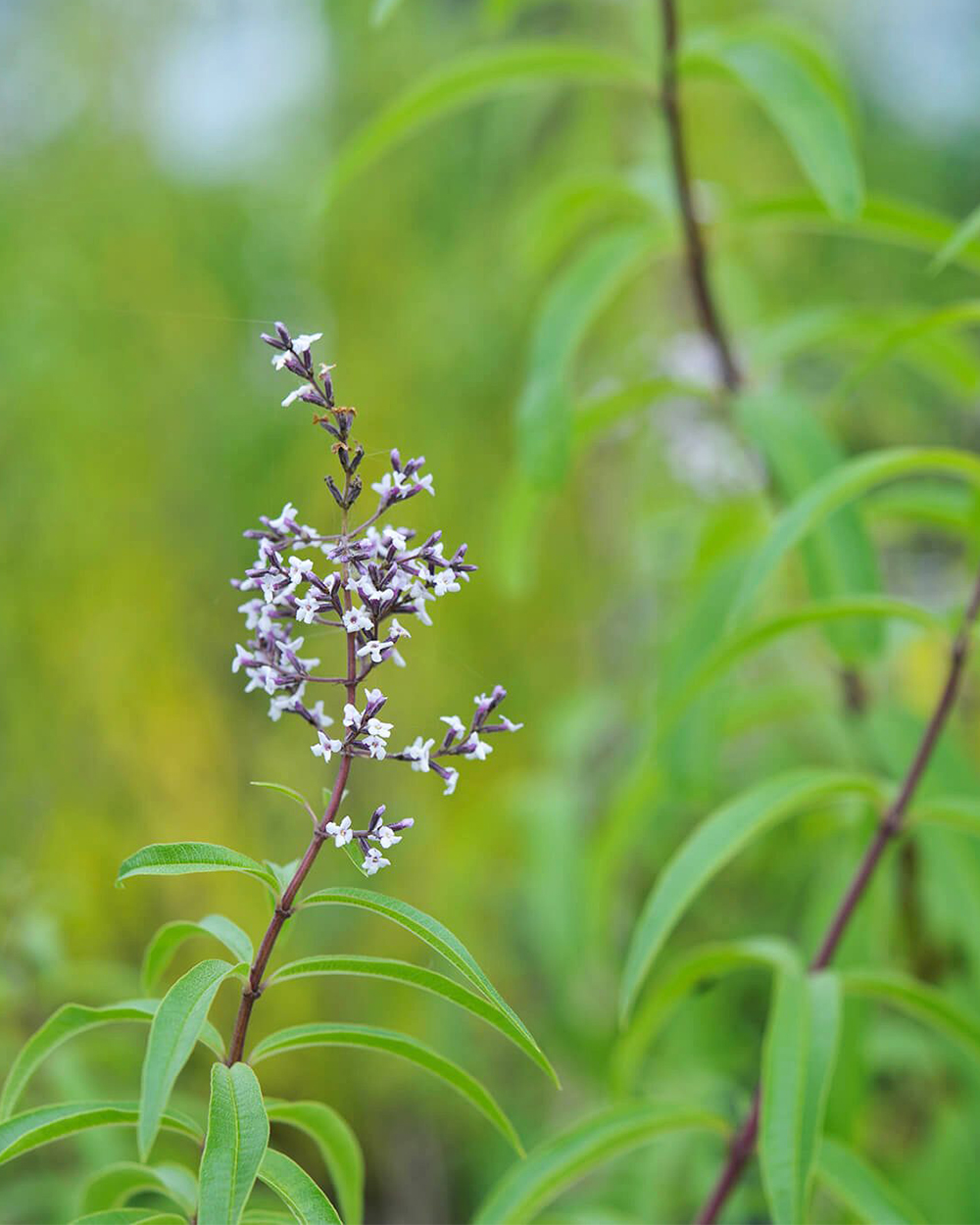Lemon verbena (Aloysia citrodora or Aloysia triphylla) is a fragrant and aromatic herb known for its distinctive lemon-like scent and flavor. Here is a detailed description of lemon verbena:
Appearance:
- Plant Type: Lemon verbena is a deciduous perennial shrub, which means it loses its leaves in the winter and regrows them in the spring.
- Size: It typically reaches a height of 6 to 10 feet (1.8 to 3 meters) when fully grown, though it can be pruned to maintain a smaller size.
- Leaves: The leaves of lemon verbena are lance-shaped and bright green. They are usually around 2 to 4 inches (5 to 10 centimeters) long and have a glossy appearance.
- Fragrance: The most distinctive feature of lemon verbena is its intense lemon fragrance. When you rub the leaves or crush them, they release a strong, citrusy aroma that is reminiscent of lemon zest.
Culinary and Medicinal Uses:
- Lemon verbena is highly prized for its culinary and medicinal uses.
- In cooking, the leaves are used to flavor a variety of dishes, including soups, salads, sauces, and desserts. It pairs particularly well with fish, poultry, and fruits.
- The leaves are commonly used to make a fragrant and refreshing herbal tea known for its lemony flavor.
- In herbal medicine, lemon verbena has been used traditionally for its potential health benefits, including as a digestive aid and to reduce anxiety. However, scientific research on its medicinal properties is ongoing.
Growing Conditions:
- Lemon verbena thrives in warm, sunny locations with well-draining soil.
- It is sensitive to cold temperatures and cannot tolerate frost. In colder climates, it is often grown in pots and brought indoors during the winter.
- Regular pruning can help maintain the shape of the plant and encourage new growth.
Harvesting and Storage:
- The leaves of lemon verbena can be harvested throughout the growing season. They are best used fresh for culinary purposes but can also be dried for later use.
- To store dried lemon verbena leaves, keep them in an airtight container away from direct light to preserve their flavor.
Lemon Verbena Essential Oil:
- The essential oil of lemon verbena is extracted from the leaves and is used in aromatherapy for its calming and uplifting scent.
- It is also used in the fragrance industry to add a lemony note to perfumes and cosmetic products.
Caution:
- While lemon verbena is generally safe for culinary and medicinal use, it may cause skin irritation in some individuals.
- As with any herbal remedy, it’s advisable to consult with a healthcare professional before using it for medicinal purposes, especially if you have underlying health conditions or are pregnant or nursing.
In summary, lemon verbena is a fragrant and versatile herb with a bright green appearance and a strong lemon scent. It is valued for its culinary, medicinal, and aromatic qualities, making it a popular choice for herbal teas, cooking, and herbal remedies.





Reviews
There are no reviews yet.